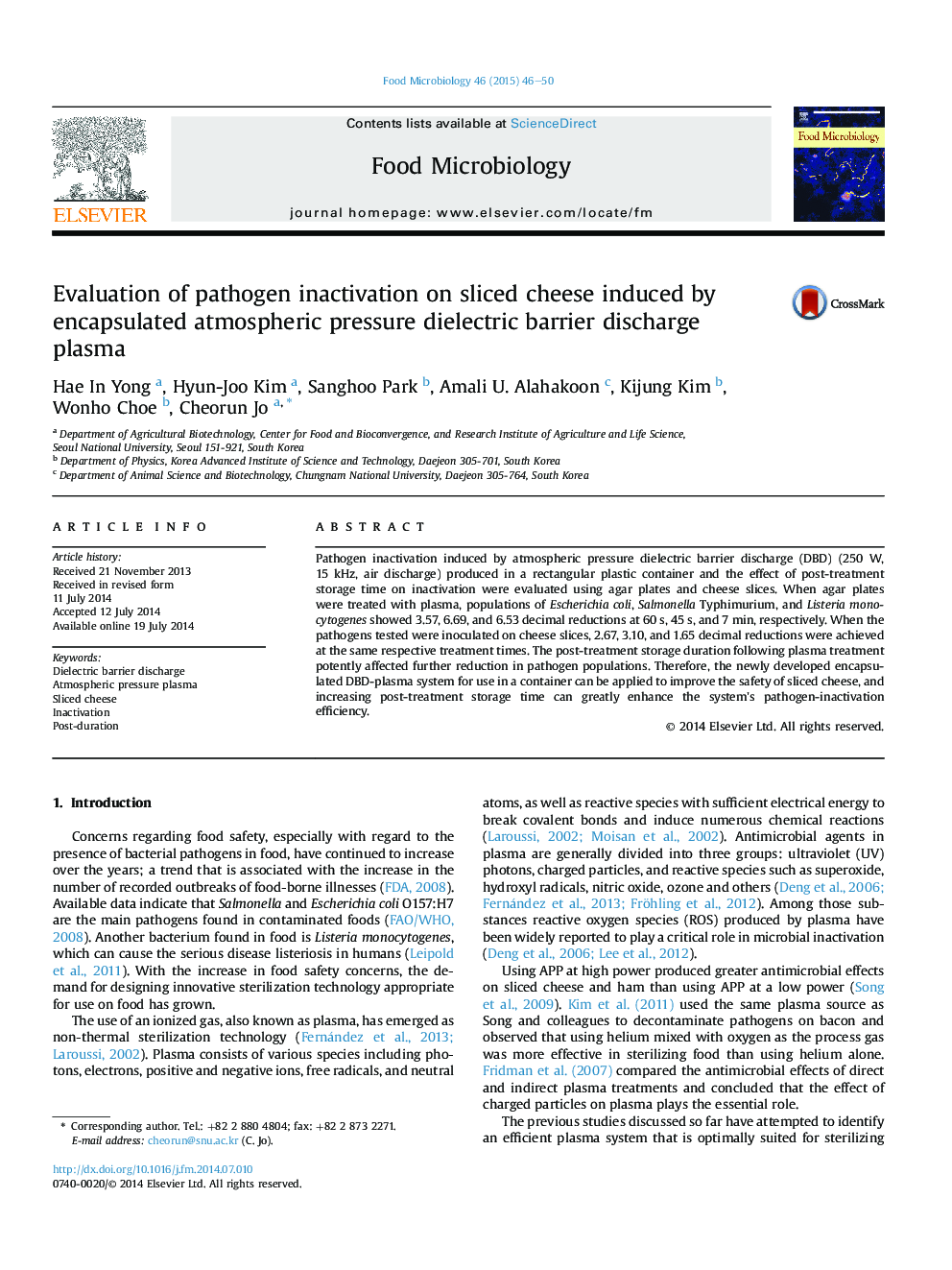| Article ID | Journal | Published Year | Pages | File Type |
|---|---|---|---|---|
| 6288518 | Food Microbiology | 2015 | 5 Pages |
Abstract
Pathogen inactivation induced by atmospheric pressure dielectric barrier discharge (DBD) (250Â W, 15Â kHz, air discharge) produced in a rectangular plastic container and the effect of post-treatment storage time on inactivation were evaluated using agar plates and cheese slices. When agar plates were treated with plasma, populations of Escherichia coli, Salmonella Typhimurium, and Listeria monocytogenes showed 3.57, 6.69, and 6.53 decimal reductions at 60Â s, 45Â s, and 7Â min, respectively. When the pathogens tested were inoculated on cheese slices, 2.67, 3.10, and 1.65 decimal reductions were achieved at the same respective treatment times. The post-treatment storage duration following plasma treatment potently affected further reduction in pathogen populations. Therefore, the newly developed encapsulated DBD-plasma system for use in a container can be applied to improve the safety of sliced cheese, and increasing post-treatment storage time can greatly enhance the system's pathogen-inactivation efficiency.
Related Topics
Life Sciences
Agricultural and Biological Sciences
Food Science
Authors
Hae In Yong, Hyun-Joo Kim, Sanghoo Park, Amali U. Alahakoon, Kijung Kim, Wonho Choe, Cheorun Jo,
